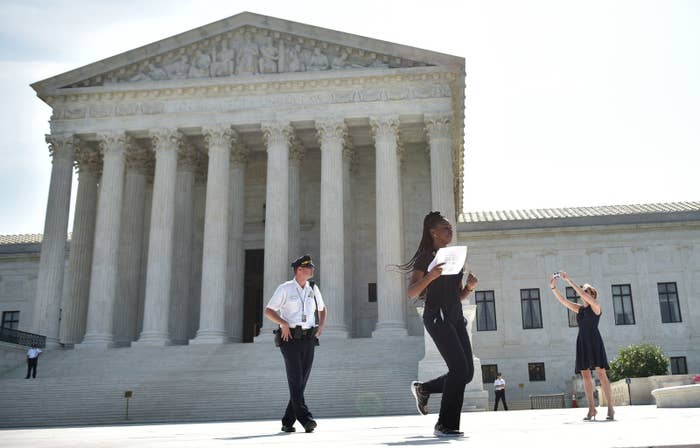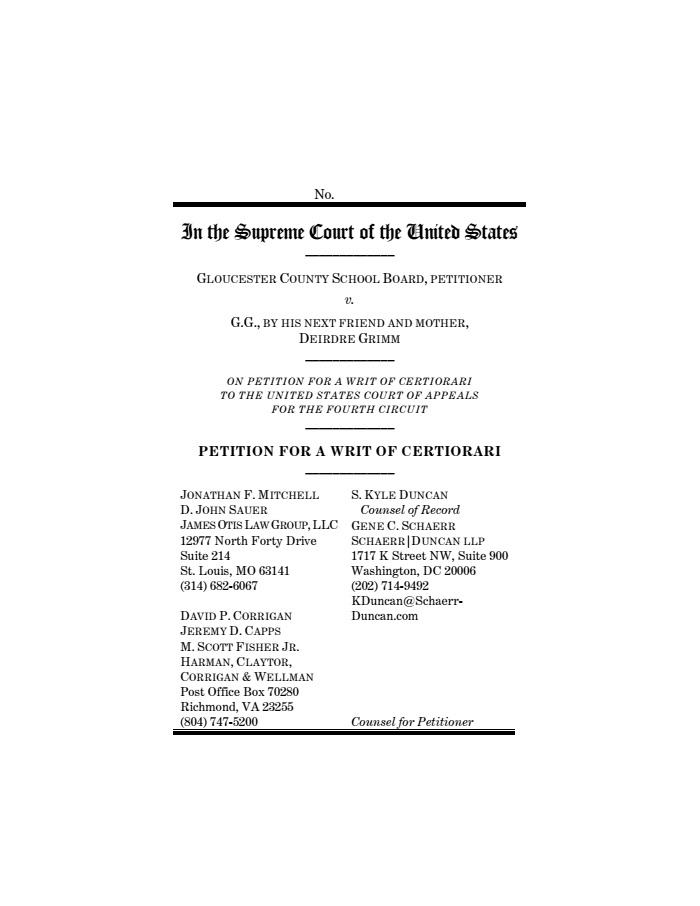
WASHINGTON — The Virginia school district seeking to limit restroom use to people's biological sex — effectively barring transgender students from using the restroom that corresponds with their gender identity — on Monday asked the US Supreme Court to hear its appeal.
The Gloucester County School Board asked the high court to take the case and reverse an appeals court decision that sided with a transgender student and the Obama administration.
Earlier this month, the Supreme Court issued an order allowing the school to keep its policy in place while the justices decide whether to hear the appeal. If the justices agree to hear the appeal, per the earlier order, the court's order allowing the policy to stay in place will remain in effect until the justices reach a decision in the case.
The student, Gavin Grimm, is represented by the ACLU. The Obama administration, through interpretation of existing laws and regulations, has determined that the sex discrimination ban in Title IX of the Education Amendments of 1972 includes a ban on anti-transgender discrimination.
The 4th Circuit Court of Appeals held that the administration's interpretation was a permissible interpretation, leading the district court in Grimm's case to issue an injunction against Gloucester schools. The Supreme Court's order, however, stayed that injunction for the time being — meaning Grimm, and any other transgender student, could not use the restroom that accords with their gender identity.
The lawyers for the school district frame the case as one not about transgender rights, but rather one about "agency behavior" in setting policies such as the Title IX interpretation advanced by the Obama administration.
"[T]his case is not really about whether G.G. should be allowed to access the boys’ restrooms, nor even primarily about whether Title IX can be interpreted to require recipients to allow transgender students into the restrooms and locker rooms that accord with their gender identity," the school board's lawyers write. "Fundamentally, this case is about whether an agency employee can impose that policy in a piece of private correspondence."
In addition to the Virginia lawyers from Harman, Claytor, Corrigan & Wellman — which has been representing the school district — the legal team representing Gloucester schools now has expanded to include some of the leading national lawyers fighting the administration's pro-transgender policies. Kyle Duncan is listed as the counsel of record in the case, and he is joined on the brief by his law partner, Gene Schaerr, as well as St. Louis lawyers from the James Otis Law Group, Jonathan Mitchell and D. John Sauer.
Once briefs are filed responding to the school board's Monday filing, the justices generally schedule a private vote on whether to hear the case.
The current composition of the Supreme Court — it has operated with only eight justices since Antonin Scalia's death in February — could become a key factor in what happens next with the case.
It takes four justices to grant the certiorari petition and hear an appeal. It takes five votes, however, to reach a majority opinion. If the court accepted the case, and split down ideological grounds 4–4, the lower court's decision in favor of Grimm and the administration would be left in place — but no national precedent would be set by the case.

